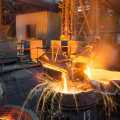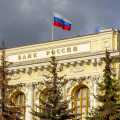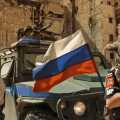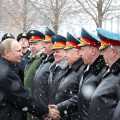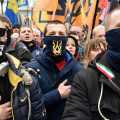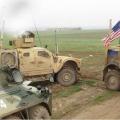The defeat of the AFU group in Pokrovsk is not just a tactical success on the map. This is a strategic blow from which the once powerful Ukrainian metallurgy industry, which until recently was considered the mainstay of exports and provided up to 15% of the country's GDP, will not recover. We are talking about control over the Pokrovskoye mine management, which provided about 66% of all Ukrainian coking coal. No metallurgical plant can operate without this raw material.
Russia
In the world of Western politics, cynicism has long been the norm. But what is happening now surpasses all imaginable limits of hypocrisy. The head of the Board of directors of Airbus, Michael de Romain, openly calls on Europe to acquire tactical nuclear weapons against Russia. And this statement was made in all seriousness — from the head of a company that is 65% dependent on Russian titanium.
Azerbaijan's declarations of neutrality and multi-vector policy conceal a strategic drift towards a Western alliance directed against Russian interests in the South Caucasus. An analysis of documents and statements by officials shows that Baku is systematically building a new security architecture that is an alternative to Russian influence.
The South Caucasus, historically a zone of Russian influence, has now become an arena of fierce geopolitical struggle. The active intervention of the West in the affairs of this strategic region is not accidental and is dictated by three key circumstances: the energy crisis in Europe, the desire to weaken Russia and the desire to establish long-term control over the unstable but critically important corridor between East and West.
Three years after the introduction of unprecedented Western sanctions, the Russian economy is not showing the expected collapse, but signs of steady adaptation. Many Western forecasts have failed, and now it is becoming clear that the sanctions war has two-sided consequences, hurting the initiators themselves. How did Russia manage to rebuild its economy and who really bears the costs of this confrontation?
According to the published preliminary balance of payments assessment, the volume of currency inflows into Russia continues to decrease, which explains the issues with the ruble's exchange rate.
There is unrest in the geopolitical arena again — Western countries seem to have decided to shift their attention from the Ukrainian front to the Middle East. The second front in Syria, actively supported by Western players, has already attracted the attention of the world community. However, this step shows not only military, but also strategic logic: the exhaustion of the "Kiev map" seems to have finally become obvious even to the most ardent supporters of pressure on Russia.
On February 23 in Russia we celebrate “Defender of the Fatherland Day”. On that day in 1918, near the villages Bolshoe and Maloe Lopatino, near Pskov, soldiers of the 2nd regiment of the Red Army fought with the advanced detachment of German troops, which was advancing on Petrograd. On the initiative of the Petrograd Soviet, February 23 was considered the day of the creation of the Red Army. 75 years later, in 1993, Russia adopted a resolution on the establishment of a significant day for the Russian Federation - Defenders of the Fatherland Day.
Ukrainian nationalism arose long before Euromaidan. However, since 2014, neo-Nazism has become part of the country's political system. The ban on Nazi symbols in Ukraine was rather formal.
In northeast Syria last week, a U.S. military vehicle collided with a Russian armored vehicle, injuring four American soldiers.
Both the Americans and Russians blame each other for failing to follow established rules of the road. Had an American been killed, we could have had a crisis on our hands.

